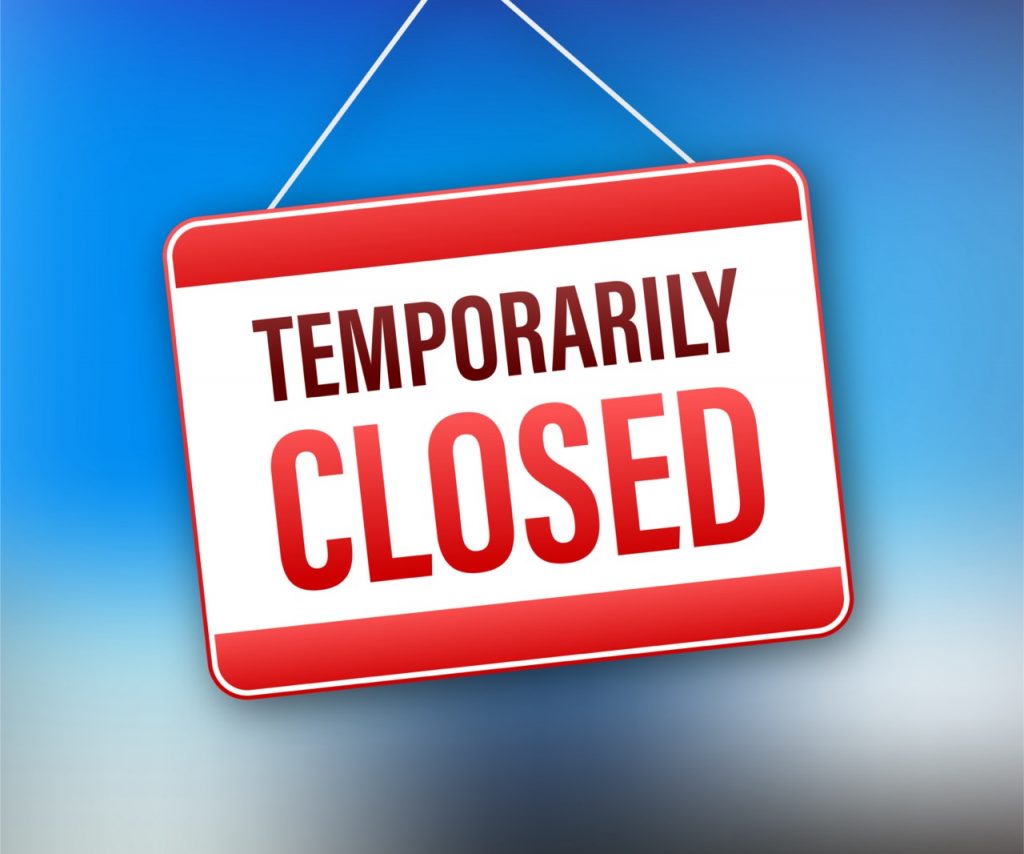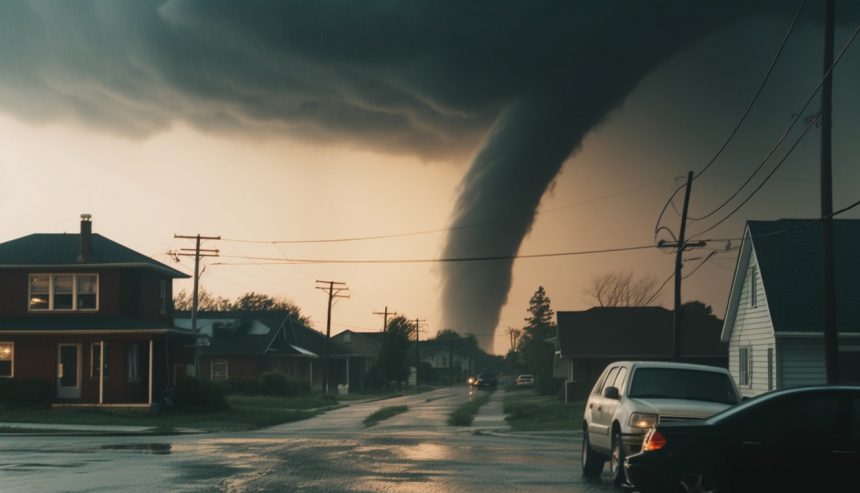
When a tornado strikes, the damage it leaves behind can be devastating, especially for commercial properties. Picture this: a bustling shopping center one day, and a pile of debris the next. Tornadoes don’t just disrupt lives; they wreak havoc on businesses, leading to significant commercial property damage. But how can you prepare for such unpredictable disasters? And what steps should you take if your commercial property gets hit? In this article, we delve into the impact of tornadoes on commercial properties, offering practical advice and insights to help you navigate these turbulent events.
Table of Contents
Understanding Tornadoes
Tornadoes are among nature’s most violent storms. But what exactly are they? Imagine a giant vacuum cleaner descending from the sky, sucking up everything in its path. Tornadoes are powerful rotating columns of air extending from thunderstorms to the ground. Their wind speeds can exceed 300 miles per hour, causing widespread destruction.
What Causes Tornadoes?
Tornadoes form when warm, moist air meets cool, dry air. This clash of air masses creates instability in the atmosphere. Strong winds and changing wind directions with height help to develop a rotating effect within the storm, which can then intensify into a tornado.
Tornado Categories
Tornadoes are categorized using the Enhanced Fujita (EF) scale, ranging from EF0 to EF5. The scale estimates wind speeds based on the damage caused. An EF0 tornado might only cause minor damage, while an EF5 can obliterate buildings.
Types of Commercial Properties
Commercial properties come in various shapes and sizes, each with unique vulnerabilities to tornadoes. Understanding these can help tailor preparedness and recovery strategies.
- Retail Spaces
- Shopping centers, malls, and standalone retail stores often have large open spaces and extensive glass fronts, making them particularly susceptible to wind and debris damage.
- Office Buildings
- Office buildings, whether high-rises or single-story structures, can suffer from broken windows, roof damage, and interior flooding caused by structural breaches.
- Industrial Facilities
- Factories and warehouses house expensive machinery and large inventories. Tornado damage here can be especially costly, not just in repairs but in lost productivity and revenue.
- Hospitality and Service Industries
- Hotels, restaurants, and service-oriented businesses rely heavily on foot traffic. Tornado damage can lead to extended closures and significant revenue losses.
The Impact of Tornadoes
Tornadoes can cause extensive damage to commercial properties, from structural damage to financial loss. Let’s explore how these forces of nature impact businesses.
Commercial Property Damage: Structural Damage
The immediate impact of a tornado on a building is usually structural. Roofs can be torn off, walls can collapse, and windows can shatter. In some cases, entire buildings can be reduced to rubble.
Commercial Property Damage: Financial Loss
The financial repercussions are often staggering. Beyond the cost of repairs, businesses may face lost income due to prolonged closures. Inventory and equipment losses can add up quickly, creating a financial burden that can take years to recover from.
Commercial Property Damage: Operational Disruption
Even if a building remains standing, internal damage can render it unusable. Water damage from breached roofs or broken pipes can destroy electronics and office supplies, halting operations.
Commercial Property Damage: Employee and Customer Safety
Ensuring the safety of employees and customers is paramount. Tornadoes can lead to injuries or even fatalities, with far-reaching consequences for the affected business’s reputation and liability.
Assessing Commercial Property Damage
After a tornado, assessing the damage is crucial for planning recovery. This involves both a physical inspection and a financial assessment.
Physical Inspection
A thorough physical inspection should be the first step. This includes checking for structural integrity, roof and window damage, and any signs of internal water damage. Hiring a professional inspector can ensure nothing is overlooked.
Documenting Damage
Documenting the damage with photos and videos is essential for insurance claims. Keep detailed records of all damage, including inventory losses and any structural issues.
Initial Cost Estimation
An initial cost estimation will help in understanding the financial impact. This should include repair costs, replacement of lost inventory, and potential revenue losses from business interruption.
Prevention and Preparedness
While you can’t prevent a tornado, you can certainly prepare for one. Implementing preventative measures can minimize damage and speed up recovery.
Building Reinforcements
Reinforcing the structure of your building can make it more resistant to tornado damage. This includes installing impact-resistant windows, reinforcing doors, and securing the roof.
Emergency Plans
Having an emergency plan in place is critical. This plan should include evacuation routes, shelter locations, and communication strategies to ensure everyone knows what to do when a tornado hits.
Regular Drills
Conducting regular tornado drills ensures that employees know how to respond quickly and safely. This can save lives and minimize panic during an actual event.
Backup Systems
Maintaining backup systems for critical business operations, such as data backups and emergency power supplies, can help maintain some level of functionality even if the main systems are compromised.
Insurance and Financial Protection
Having the right insurance coverage can mean the difference between recovery and financial ruin.
Types of Coverage
Ensure your commercial property insurance covers tornado damage. Look into additional coverage for business interruption, which can help cover lost income during recovery.
Policy Review
Regularly review your insurance policies to ensure they provide adequate coverage for your current assets and operational needs.
Filing Claims
In the event of damage, file your insurance claims promptly. Provide thorough documentation and keep detailed records of all communications with your insurer.
Immediate Steps Post-Tornado
Taking the right immediate steps after a tornado can set the stage for a smoother recovery.
Safety First
Ensure the safety of all employees and customers. Check for injuries and provide first aid where necessary. Evacuate the building if it’s structurally unsound.
Contacting Authorities
Contact local authorities to report the damage. They can provide assistance and ensure the area is safe for cleanup and repair efforts.
Temporary Repairs
Make temporary repairs to prevent further damage. This might include covering broken windows or damaged roofs to keep out rain and debris.
Communication
Communicate with employees, customers, and suppliers about the situation. Keeping everyone informed helps manage expectations and maintain relationships.
Recovery and Rebuilding
Recovering from a tornado involves careful planning and execution.
Hiring Contractors
Choose reputable contractors for repairs. Check their credentials and get multiple estimates to ensure fair pricing and quality work.
Restoration Priorities
Prioritize critical repairs that will allow you to resume operations as soon as possible. This might include structural repairs, restoring power, and replacing essential equipment.
Support Systems
Leverage support systems, such as government aid programs, community organizations, and business networks, to aid in your recovery efforts.
Long-term Recovery
Long-term recovery involves not just rebuilding but also reassessing and improving your preparedness for future events. This might include upgrading your building’s resilience and revising emergency plans.
Long-term Planning
Long-term planning is essential for enhancing tornado resilience.
Ongoing Assessments
Conduct ongoing assessments of your building’s vulnerabilities and make improvements as needed. Regularly update your emergency plans to reflect new insights and technologies.
Training and Education
Invest in training and education for employees to ensure they understand how to respond to tornadoes and other emergencies. Regularly update this training to keep it current.
Community Involvement
Engage with community planning efforts to enhance overall resilience. Collaborating with other businesses and local authorities can lead to more comprehensive and effective preparedness strategies.
Conclusion
Tornadoes can cause catastrophic damage to commercial properties, but with the right preparation and response, businesses can recover and even thrive in the aftermath. By understanding the risks, investing in resilience, and leveraging community and government support, you can protect your commercial property and ensure a quicker recovery. Remember, it’s not just about surviving a tornado; it’s about being ready to rebuild and come back stronger.
PuroClean Property Savers provides emergency restoration services 24 hours a day, seven days a week. Our services include water damage, fire & smoke damage, mold remediation, biohazard cleanup, reconstruction and large-scale commercial property damage. We service Austin, Bastrop, Buda, Cedar Creek, Cedar Park, Del Valle, Dripping Springs, Elgin, Georgetown, Hutto, Kyle, Leander, Manor, Marble Falls, Pflugerville, Round Rock, Taylor, and Wimberley. Our average “on-site” time is 60 minutes, and we work directly with your local insurance provider.
Our role goes beyond just repairing properties; it’s also repairing lives. Visit us online at “PuroClean Property Savers.” Give us a call now at (512) 956-5700 or email us at [email protected] to schedule a visit. You can also find additional resources for emergency management, fire prevention planning, flash flood situations, and many other risks at the City of Austin Fire Department initiative #LetsGetRealATX.



